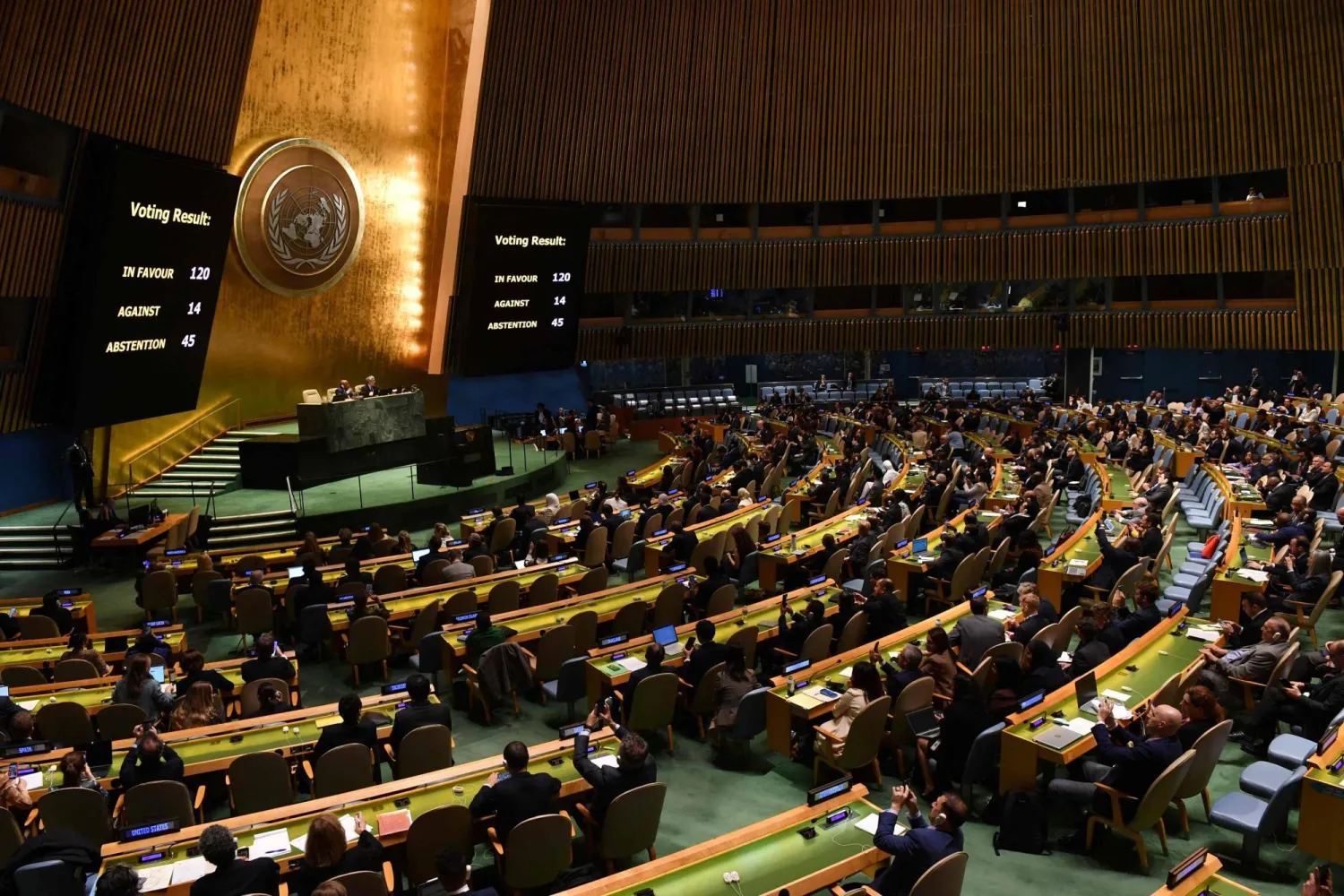The UN General Assembly overwhelmingly approved a nonbinding resolution drafted by Arab states Friday calling for a “humanitarian truce” in Gaza leading to a cessation of hostilities between Israel and Gaza’s Hamas rulers, the first United Nations response to the war.
The 193-member world body adopted the resolution by a vote of 120-14 with 45 abstentions after rejecting a Canadian amendment backed by the United States.
Riyad Mansour, the Palestinian UN ambassador, called the General Assembly “more courageous, more principled” than the divided UN Security Council, which failed in four attempts during the past two weeks to reach agreement on a resolution. Two were vetoed and two failed to get the minimum nine “yes” votes required for approval.
Israel’s UN Ambassador Gilad Erdan called it “a day that will go down in infamy,” saying after the vote: “Israel will not stop the operation until Hamas terror capabilities are destroyed and our hostages are returned. ... And the only way to destroy Hamas is root them out of their tunnels and subterranean city of terror.”
Frustrated Arab nations went to the General Assembly, where there are no vetoes to press for a UN response. And the United Arab Emirates Ambassador Lana Nusseibeh, the Arab representative on the Security Council, expressed delight at the result.
“120 votes in this kind of geopolitical environment is a very, very high signal of the support for international law, for proportionate use of force, and it is a rejection of the status quo that is currently happening on the ground,” she said.
Unlike Security Council resolutions, General Assembly resolutions are not legally binding but the Nusseibeh told reporters “they carry incredible weight and moral authority.”
She said the 10 elected Security Council members, who serve two-year terms, will take the “moral authority” from the General Assembly and try to break the gridlock on a council resolution.
The votes came part way through a list of 113 speakers at an emergency special session of the General Assembly on Israeli actions in occupied Palestinian territories.
Jordan’s UN Ambassador Mahmoud Hmoud, speaking on behalf of the UN’s 22-nation Arab group, called for action on the resolution because of the urgency of the escalating situation on the ground.









